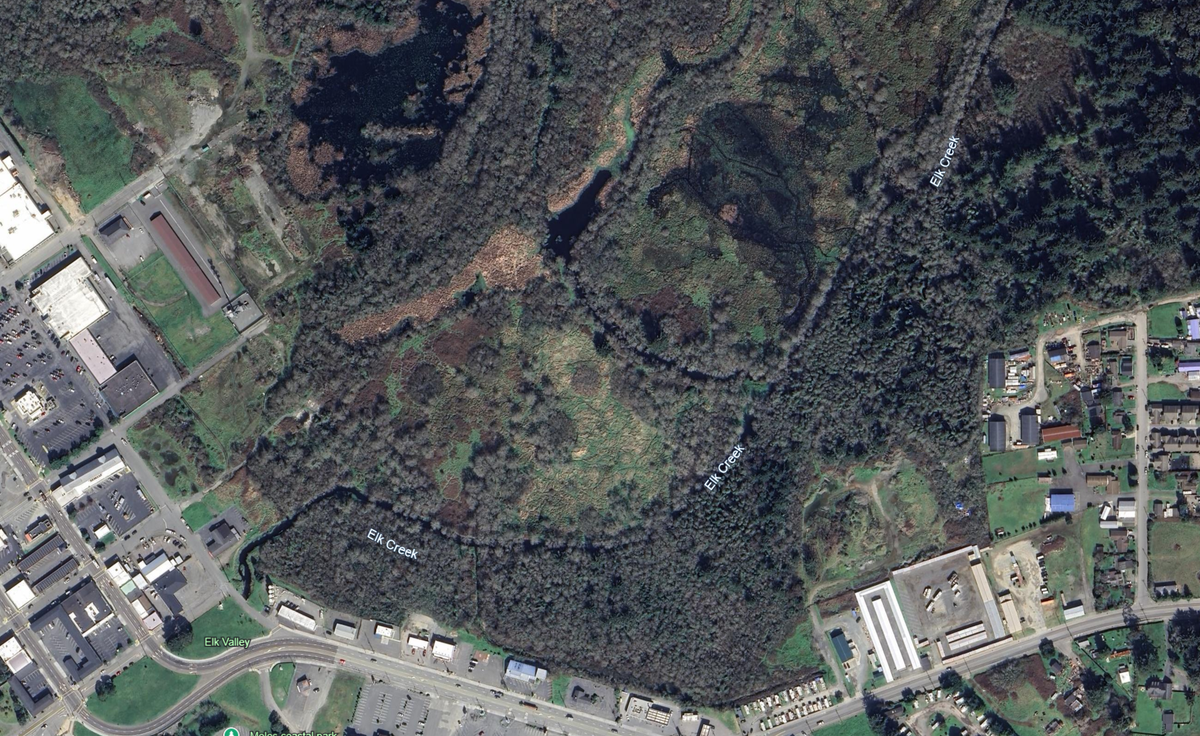Opinion: Smith River Alliance’s Huckster Grant Werschkull Sells Deceit to City Council

Opinion by Samuel Strait
Had Werschkull dressed in magician robes, worn a pointed hat, and flourished a magic wand, the grift could not have been more obvious at the last Crescent City Council meeting on Monday, November 3. Werschkull, in the oily tones of a used car salesman, spoke at length in an effort to convince the council to author a letter of support for the Lower Elk Creek Wetland Enhancement Project — something barely within the city’s jurisdiction.
The Lower Elk Creek Wetland Enhancement Project, pitched as an effort to ‘restore’ habitat and improve flood control, is in reality another public funded environmental vanity project — draining old logging ponds and reshaping usable land under the banner of ‘coastal resiliency,’ with little evidence of real public benefit.
Leave it to Werschkull to manufacture concern over the remote possibility of a 700-year Cascadia Subduction event wreaking havoc along the coast, which restoration of Lower Elk Creek is “supposed to mitigate.” Of course, first he must adjust his “magic wand and pointed hat” to ensure whatever he is talking about only affects the coast directly in front of Elk Creek. Later in Werschkull’s presentation, he admits even waving his magic wand and tinkering with Elk Creek may be beyond his powers to change the course of events.
It seems various county boards have had to put up with a laundry list of Mr. Werschkull’s nonexistent and manufactured “catastrophes” for far too long to give his latest claim of “coastal resiliency” any credence. His claims of “economic benefit” for Crescent City, plus a myriad of recreational opportunities for locals and tourists, ran smack into the reality that 650,000 acres of recreational opportunity already exist in the county — meaning Lower Elk Creek’s 420 acres would hardly move the needle for either economic impact or additional recreation.
Not to be deterred, Werschkull returned to the podium to dismiss recreational activities as the primary reason for the costly restoration, instead claiming that “coastal resiliency” was the ultimate driver for the project. No explanation was given as to how exactly he would convince “Mother Nature” to use the Elk Creek wetlands as an area for tidal waters from future tsunamis or flooding to confine their activities to a particular section of the coast.
A public comment followed, pointing out Werschkull’s obvious and frail connections to the practicality of such a restoration project, the conflict with millions of dollars already spent on the city’s version of an urban park, and the lack of any need for additional recreational opportunities.
The Council’s reaction was about what one would expect. Councilor Greenough asked about the city’s involvement through its police department. He was assured by Police Chief Richard Griffin that the city had very little in the way of actual jurisdiction. Councilor Tinkler, who constantly lives in the fantasy world where “anything with the word environment included” must be a “good thing,” was once again on public display. Sad to see such ignorance so openly shown. Councilor Wright and Mayor Altman had little to offer.
The actual intent of the restoration project is “to restore the wetlands to their original state” prior to when human activity conducted actual economic enterprises in the area that benefited the entire county. Needless to say, the timber industry has barely existed as an economic driver in the county for many years. Instead, we have 650,000 acres of poorly maintained “parkland” — and Werschkull’s notion that the city needs to participate by approving another 420 acres.
Economic development, anyone? Tax revenue? Prosperity? No. Drain the logging ponds, remove the dams, transport the spoils — to where? The cost is not mentioned. After all, it’s only taxpayers who must shoulder the expense. The council has done its virtue-signaling best, yet the rationale for a letter of support for another of Werschkull’s manufactured crises remains questionable. But then, much of what passes for governance in the city has been questionable for years.
I suppose now that the city has given its blessing to another of Werschkull’s fantasies, it’s time for him to move on — robes, pointed hat, and wand in hand — to the attention of the Del Norte County Board of Supervisors. Likely a future agenda item for the County. Of course, one wonders how Werschkull manages to be placed on any governing body’s agenda when local officials have far more important matters to attend to than the imaginative perils existing in the fantasy world of Grant Werschkull.

Comments ()